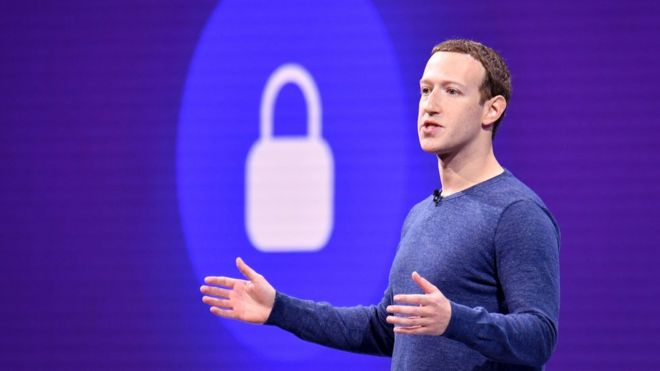Mark Zuckerberg says regulators and governments should play a more active role in controlling internet content.
In an op-ed published in the Washington Post, Facebook’s chief says the responsibility for monitoring harmful content is too great for firms alone.
He calls for new laws in four areas: “Harmful content, election integrity, privacy and data portability.”
It comes two weeks after a gunman used the site to livestream his attack on a mosque in Christchurch, New Zealand.
“Lawmakers often tell me we have too much power over speech, and frankly I agree,” Mr Zuckerberg writes, adding that Facebook was “creating an independent body so people can appeal our decisions” about what is posted and what is taken down.
…
An interesting move which puts Zuckerberg in a parallel position to Bruce Schneier, who’s recently (and especially in his latest book) stood in opposition to a significant number of computer security experts (many of whom are of the “crypto-anarchist” school of thought) also pushed for greater regulation on the Internet. My concern with both figureheads’ proposals comes from the inevitable difficulty in enforcing Internet-wide laws: given that many countries simply won’t enact, or won’t effectively enforce, legislation of the types that either Zuckerberg nor Schneier suggest, either (a) companies intending to engage in unethical behaviour will move to – and profit in – those countries, as we already see with identity thieves in Nigeria, hackers in Russia, and patent infringers in China… or else (b) countries that do agree on a common framework will be forced to curtail Internet communications with those countries, leading to a fragmented and ultimately less-free Internet.
Neither option is good, but I still back these proposals in principle. After all: we don’t enact other internationally-relevant laws (like the GDPR, for example) because we expect to achieve 100% compliance across the globe – we do so because they’re the right thing to do to protect individuals and economies from harm. Little by little, Internet legislation in general (possibly ignoring things like the frankly silly EU cookie regulation and parts of the controversial new EU directives on copyright) makes the Internet a safer place for citizens of Western countries. There are still a huge number of foreign threats like scammers and malware authors as as well as domestic lawbreakers, but increasing the accountability of large companies is, at this point, a far bigger concern.

0 comments